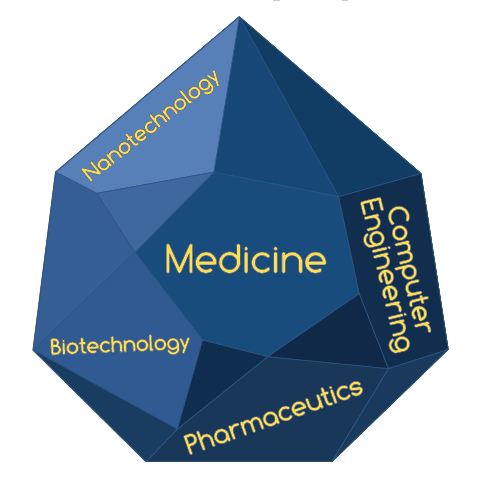The project proposes the design and development of an innovative diagnostic and therapeutic device that will make use of novel graphene structures. The implementation of the project will be based on three sub-actions and specifically:
- The development of a sensitive bio-glucose sensor in sweat based on graphene. Graphene sheets with state-of-the-art Langmuir Blogget technology will be deposited to immobilize compounds that have the ability to bind glucose. The biosensor will be an adhesive patch that will continuously measure sweat glucose levels and will therefore be a non-invasive diagnostic method.
- The development of a system of prolonged release of hypoglycemic therapy. SGLT-2 inhibitors and GLP-1 analogues, active compounds used in the treatment of type 2 diabetes, will be trapped in nanoemulsions. The nanoemulsions will have lipophilic properties and will be placed in gelatin patches which will adhere to the surface of the skin like the bio-sensor.
- The development of a device / software which, through Bluetooth technology, will receive electrical signals from the bio-sensor, will analyze the change of glucose levels in sweat and will signal the release of the nanoemulsion of the patch by heating. The final product (Actions A, B and C) will be an object of smart specialization in the field of biomedicine and pharmacy which utilizes the strong development that has shown in the last decade materials science, biotechnology and information technology.
The implementation of the program is expected to offer not only scientific and financial benefits to the participating institutions and the company as well as in our country, but mainly in the management of diabetes and in improving the quality of life of a large number of people as it aims to develop a closed control system (closed-loop) and finally the fully automated control of diabetes mellitus with continuous measurements of glucose levels and administration of hypoglycemic substance.
The proposed research activity is fully aligned with the revised priorities of the National Intelligent Strategy Strategy (RIS3) which aims to develop diagnostic and therapeutic devices for controlled drug delivery for more effective and targeted individualized treatment.

